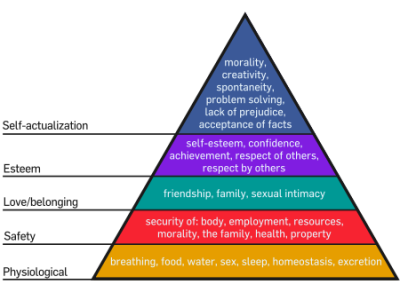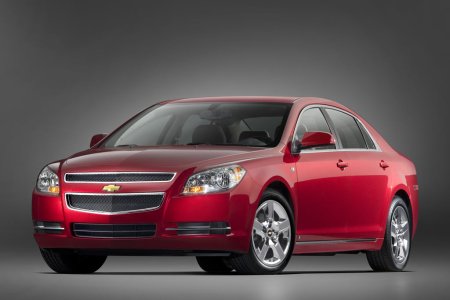Yes, you get my point ...
Manufacturing cars? One word: NO!
I guess it's just a matter of perspective, prioroities, and where you want the lines drawn, then.
I got no problem with the government spending money ensuring I have the right to life (e.g. defense spending, dams and water projects assuring a higher standard of living),
Higher standard of living is certaily a different level of Maslow's higherarchy than defense spending is.

Sure, we need defense, and that is definately in the broad base there, in the second tier "red zone" of security.
But dams- as you rightly point out, a dam holds back water, and that can be both a resevoir to drink from, and power to power industry. Both items that kind of push into the red zone on the Maslow's chart. But then again, so does "security of employment" on the chart.
Luckily, we don't need to take community assets (tax money) to help out car companies very often. In fact, we've done it twice now. Chrysler in the early 80's, and now both GM and Chrysler in 2009. Both times it was an unforseen economic downturn that could have had very very bad long-term economic consequences on hundreds of thousands of American workers.
And both times it seems to have worked to stem prevent the massive unemployment that could have resulted from the economic shock had they gone under.
Like I say, it's a matter of one's priorities, and what they think the nation's resources should be used to save--education and schools, or jobs and employment.
Then again- if there were no jobs, both would take a huge hit, wouldn't they? we wouldn't be able to fund education, AND we'd have a huge drain through unemployment compensation, and trying to stimulate the creation of NEW jobs in new sectors. That would cost society a lot, maybe even a lot MORE than saving Auto jobs would cost, I would say.



